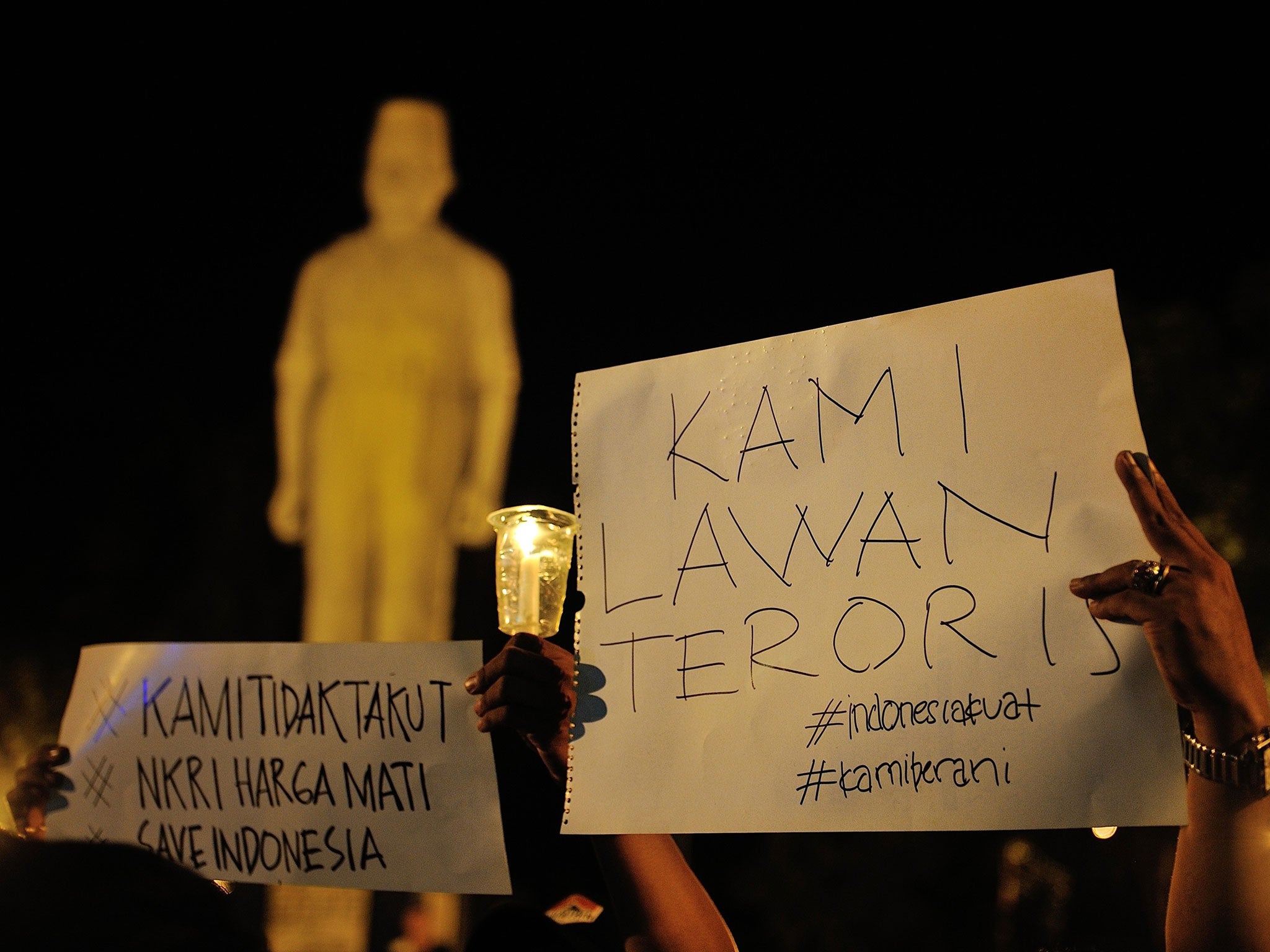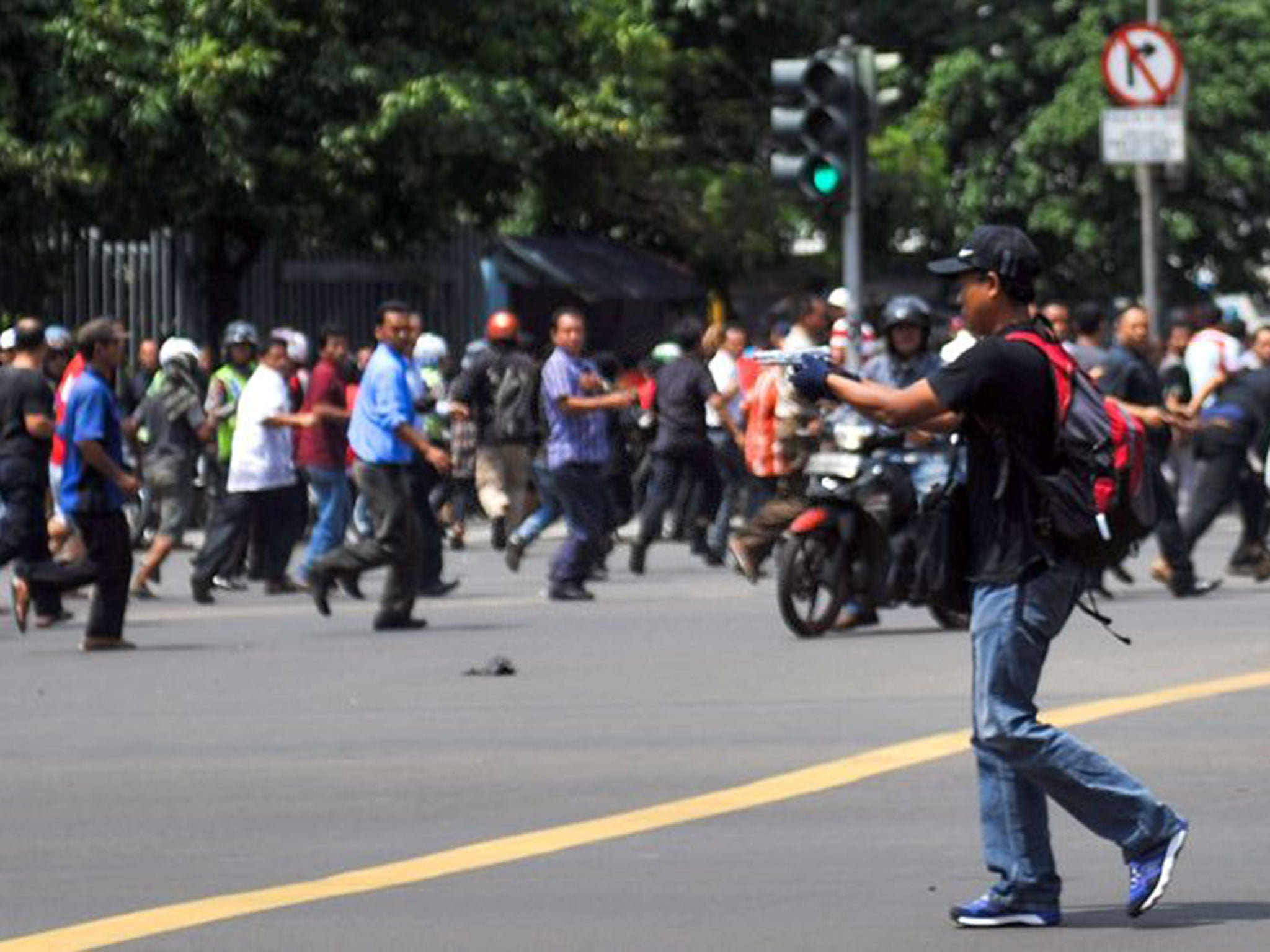Jakarta attacks: Chart shows Isis hated in Indonesia and Muslim-majority countries around the world
Research showed that only 4% of Indonesians declared a 'favourable view' in research conducted before the attacks

Your support helps us to tell the story
From reproductive rights to climate change to Big Tech, The Independent is on the ground when the story is developing. Whether it's investigating the financials of Elon Musk's pro-Trump PAC or producing our latest documentary, 'The A Word', which shines a light on the American women fighting for reproductive rights, we know how important it is to parse out the facts from the messaging.
At such a critical moment in US history, we need reporters on the ground. Your donation allows us to keep sending journalists to speak to both sides of the story.
The Independent is trusted by Americans across the entire political spectrum. And unlike many other quality news outlets, we choose not to lock Americans out of our reporting and analysis with paywalls. We believe quality journalism should be available to everyone, paid for by those who can afford it.
Your support makes all the difference.No Muslim-majority country in the world supports Isis, new research has shown as Indonesia reels from the group’s latest terror attack.
The so-called Islamic State claimed responsibility for suicide bombings and shootings in Jakarta yesterday – the first time it has targeted the world’s largest Muslim country.
A chart created for The Independent by Statista showed only 4 per cent of Indonesians declared a "favourable view" of the jihadist group – the same figure as in Saudi Arabia.
You will find more statistics at Statista
The highest support – little over a fifth - was seen in Syria, where hundreds of thousands of civilians live in swathes of the country controlled by Isis and more than four million refugees have fled the country.
Research showed Nigeria, Tunisia and Malaysia to have comparatively widespread support, the figure was put at 0 per cent in Iran and Lebanon.
Responding to research carried out by the Pew Research Centre, Chris Doyle, director of the Council for Arab-British Understanding (Caabu), told The Independent that the results were no surprise.

“I think it emphasises that Isis are seen as a threat to communities across the Arab world – Muslims have been their primary victims after all, as was the case with al-Qaeda,” he said.
“The brutal nature of their rule, the way they have treated women, all the beheadings, have not endeared them to people.
“(Respondents) also know that by their actions, Isis are trying to turn the non-Muslim world against them.”
Thursday was the first time Isis had claimed an attack in Indonesia, where previous bombings had been attributed to an al-Qaeda affiliate called Jemaah Islamiyah.
Seven people, including five attackers, a Dutch UN employee and Indonesian policeman died as bombers and gunmen attacked a busy shopping district, injuring 20.
More than 200 million people identify themselves as Muslim in Indonesia according to 2011 research – 87 per cent of the population – and are predominantly Sunni.
Officer have arrested three men on suspicion of links to the plot and seized an Isis flag from one of the bombers.
Joko “Jokowi” Widodo, the Indonesian President, said terrorists would not win.
“This act is clearly aimed at disturbing public order and spreading terror among people,” he added,
“The state, the nation and the people should not be afraid of, and lose to, such terror acts.”
Join our commenting forum
Join thought-provoking conversations, follow other Independent readers and see their replies
Comments